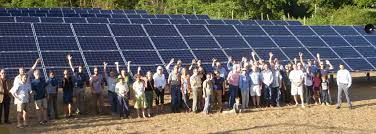Alphabet of Climate Change from A to Z, Now “Y” for Yourself
From the Article by Elizabeth Kolbert, New York Magazine, November 28, 2022
So far, average global temperatures have risen by 1.1 degrees Celsius — two degrees Fahrenheit — and the budget for 1.5 Celsius is nearly gone. How hot will it get? Will temperatures climb two degrees Celsius? 2.5? Three?
A study published a few years ago, by Veerabhadran Ramanathan, a climate scientist at the Scripps Institution, and Yangyang Xu, of Texas A&M, defined a temperature increase of 1.5 C degrees as “dangerous,” an increase of three C degrees as “catastrophic,” and an increase of five C degrees as “unknown, implying beyond catastrophic.”
A second study, by a group of American and European researchers, determined that, if we were to burn through all known fossil-fuel reserves, global temperatures could rise by as much as eleven degrees Celsius, or twenty degrees Fahrenheit. (How humanity could keep the oil flowing even as the world drowned and smoldered was a question the researchers did not address.)
There are good reasons to opt for optimism. (See “narratives.”) It could be argued that the passage of the Inflation Reduction Act this past summer was possible only because so many people believed in a better future.
At the same time, there are good reasons to wonder whether optimism lies at the heart of the problem. For the last thirty years — more if you go back to 1965 — we have lived as if someone, or some technology, were going to rescue us from ourselves. We are still living that way now.
“You can’t just sit around waiting for hope to come,” Greta Thunberg observed in a speech scolding E.U. politicians. “Then you’re acting like spoiled, irresponsible children. You don’t seem to understand that hope is something you have to earn.”
#######+++++++#######+++++++########
See Also: West Virginia Environmental Council
